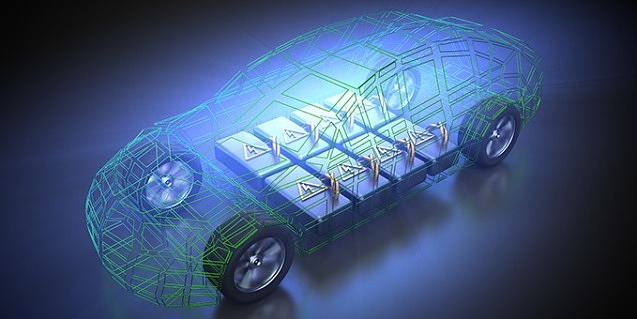Testing according to UN 38.3 – Tests for safe lithium-ion batteries in transport

Table of content
Compliance with UN 38.3 is essential for the legal transport of lithium-ion batteries. In addition to legal aspects, it significantly contributes to the safety of the logistics chain. As a reliable partner, cetecom advanced offers comprehensive support, from the execution of UN 38.3 tests to technical support and legal documentation.
What is UN 38.3?
UN 38.3 is a chapter in the “UN Manual of Tests and Criteria” (Chapter 38.3) that outlines the testing requirements for the transport of lithium cells and batteries as dangerous goods. It is based on the United Nations’ international framework for the classification of hazardous goods, managed by the UNECE (WP.15/AC.1).
The standard does not require certification by an independent body. The manufacturer is responsible for compliance with the regulations and safe transport. Since January 1, 2020, a UN 38.3 test summary is mandatory for all batteries in the supply chain.
Shipping Batteries According to ADR
Lithium-ion batteries are classified as dangerous goods of Class 9 under ADR (Accord européen relatif au transport international des marchandises Dangereuses par Route).
Relevant UN numbers include:
- UN 3480 – Lithium-ion batteries
- UN 3481 – Lithium-ion batteries contained in or packed with equipment
- UN 3090 / UN 3091 – Lithium metal batteries
- UN 3171 – Battery-powered vehicles
For transport, it must be demonstrated that the batteries meet the requirements of UN 38.3 (ADR Chapter 2.2.9.1.7a). Exceptions are provided for prototypes, small series (<100 cells), damaged or defective batteries, and energy storage systems below defined thresholds (e.g., <100 Wh per battery).
Testing Conditions According to UN 38.3
UN 38.3 specifies eight tests (T1–T8) that must be conducted in a defined sequence on cells, modules, or batteries. These tests simulate typical stresses during transport (temperature, pressure, mechanical stress, etc.).
Test objects:
- Single cells
- Batteries
- Modules
- Systems (>6.2 kWh only under specific conditions)
- Systems (<6.2 kWh only under specific conditions)
Test criteria:
- Voltage drop ≤10%
- Weight difference ≤1%
- No fire, no disassembly, no leakage

Overview of UN 38.3 Tests T1 to T8
| Test | Description | Objective |
| T1 | Low-pressure simulation | Air transport conditions (8,000–10,000 m altitude) |
| T2 | Temperature cycling | Extreme temperature fluctuations |
| T3 | Vibration | Vibration during transport |
| T4 | Shock | Drops or impacts |
| T5 | External short circuit | Behavior during short-circuit |
| T6 | Crush (only for cells) | Mechanical stress from crushing |
| T7 | Overcharge | Behavior during accidental overcharge |
| T8 | Forced deep discharge (only for cells) | Cell malfunction by reverse polarity |
Detailed Testing Examples – T1–T7
- T1: Simulating air transport at 11.6 kPa for 6 hours → Simulates pressure conditions at high altitudes, e.g., during air transport.
- T2: 10 cycles of 72°C / -40°C with 6 hours hold time → Tests thermal resistance under extreme temperature fluctuations.
- T3: Vibration test in 3 axes for 3 hours each → Tests mechanical stability under transport vibrations.
- T4: 18 shocks with half-sine pulse (3 shocks per direction in all 3 axes) → Simulates drops or impacts during transport.
- T5: Short-circuit with defined resistance (<100 mΩ) → Stress test for external short-circuit – temperature must not exceed 170°C, no flames or explosions allowed.
- T6: Crush test – only for cells, especially pouch, prismatic, and small cylindrical cells (<18 mm diameter) → Cell subjected to up to 13 kN of pressure. No fire, explosion, or disassembly allowed.
- T7: Overcharge – Testing the safety under accidental overcharging → Cell/battery is charged for 24 hours at twice the maximum charge current. The goal is to prove that no dangerous reactions (fire/disassembly) occur in the following 7 days. This test can be omitted if reliable overcharge protection is demonstrated.
Particularities:
- Fixation and attachment of test items in T3/T4 can significantly influence results.
- The short-circuit resistance in T5 is selectable, which can strongly influence test results.
What’s New in Revision 8?
The current Revision 8 (2023) introduces the following changes:
- Introduction of Sodium Batteries in Chapter 38.3.3.2:
-
- Testing requirements now similar to those for lithium systems
- Large batteries made from tested individual modules are no longer differentiated by performance but are essentially exempt from testing if:
- Overcharge is excluded
- Short-circuit between modules is excluded
- Deep discharge is prevented.
- Large batteries made from tested individual modules are no longer differentiated by performance but are essentially exempt from testing if:
- Overcharge is excluded
- Short-circuit between modules is excluded
- Further clarifications on test item types, test exemptions, and documentation requirements
UN 38.3 Testing and Certification Services Offered by cetecom advanced
cetecom advanced provides a comprehensive UN 38.3 testing and certification service for manufacturers and distributors of lithium batteries according to ST-SG-AC.10-11, 38.3:
- Test execution according to UN Manual Rev. 8
- Documentation & test summaries
- Technical support for prototypes, small series, & special transports
- Conducting of the tests T1–T8 with modern measuring equipment and experienced test personnel
- Support for ADR-compliant packaging & labeling

Are you looking for more detailed information on our services related to Battery and Environmental Safety?
A complete list of our services related to battery safety testing and environmental simulation testing can be found on the respective subpages, as well as in our brochure:
- Battery Safety Testing
- Environmental Simulation Testing
- Brochure “Battery Safety and Environmental Simulation”
Compliance with UN 38.3 not only ensures legal protection but also minimizes potential safety risks in the transport of lithium-ion batteries. Let us help ensure that your batteries are transported safely and in compliance with regulations.
Feel free to contact us directly to learn more about our services and how we can assist with UN 38.3 compliance and the safe delivery of lithium-ion batteries: mail@cetecomadvanced.com






